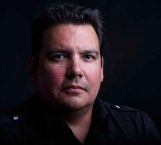
WINNIPEG – OPINION – Following the Oct. 21 federal election, there’s been talk about Alberta and Saskatchewan separating from Canada.
Much of this has been under the banner of “Wexit” (borrowing from Britain’s highly successful – note sarcasm – “Brexit”). This group has been loud on social media and has been busy organizing rallies and petitions in multiple cities under the banner: “The West Wants Out.”
Now, I don’t usually spend time writing about fringe groups, but Wexit’s Facebook page has more than 263,000 members and its website lists events well into next year. Wexit’s goal is to have Saskatchewan and Alberta hold referendums to separate from Confederation under the federal Clarity Act, which establishes legislative rules for provinces or territories to secede from Canada.
On Tuesday, Wexit leadership applied to become an official federal political party.
Wexit is not a fringe group. It emerges from separatist sentiments in the West, which an Ipsos poll released Monday pronounced is at “historic highs.”
“This is really a story of two oil provinces that feel that they made a substantial contribution to the Canadian economy during the boom years,” said Ipsos senior vice-president Kyle Braid, “and now feel when things are not going as well, they feel isolated, underappreciated, misunderstood by the rest of the country.”
While Saskatchewan Premier Scott Moe and Alberta Premier Jason Kenney have both denied pursuing separation, they haven’t denounced it either.
“Let’s face it, the discussion around separation is alive and happening in communities here in the province,” said Saskatchewan Premier Scott Moe.
Kenney has taken this a step further, threatening to call a referendum on Alberta’s equalization payments, which he says “contribute $20 billion more annually to the Government of Canada than (Albertans) receive back in benefits, and yet our ability to develop that wealth is increasingly blocked through cancelled and killed pipelines and policies.” He now has committed to holding “open public forums” on “Alberta’s role in confederation.”
The main concerns of Moe, Kenney and Wexit are that Alberta and Saskatchewan contribute far more to Canada than they get back; they lack representation in government, and are suffering due to decisions made in Canada’s national interest.
Welcome to Indigenous life. At least you get a choice.
If Wexit is real, let’s play a little game.
Let’s say there are referendums and one or both of the provinces vote to secede. Now what?
Here’s the first problem. Alberta and Saskatchewan don’t have rights to claim land. The Land they live on is claimed by the Crown – justly or unjustly – via the 1763 Royal Proclamation and, later, the “numbered” treaties with Canada (which legally establishes the Crown’s relationship with Indigenous nations).
Canada has outstanding land claims with virtually every Indigenous nation it’s dealt with. Before any discussion of what land makes up “Alberta” and “Saskatchewan” take place, land claims by Indigenous nations would have to be solved. Canada has also acted violently and exploited Indigenous nations for over a century, so restitution, the return of land, and adequate recognition of Indigenous governments would need to occur for reconciliation to be possible.
If somehow these complicated 150-year old issues could be sorted out, now you’re left with defining the relationship Indigenous nations would share with Alberta and Saskatchewan – if Indigenous communities wanted to discuss this possibility at all.
Alberta resides in three treaty areas (6, 7 and 8) and includes 45 First Nations. Saskatchewan spans six treaty territories (2, 4, 5, 6, 8) and 70 First Nations. Did I mention the dozens of Métis communities in these places as well?
Every single one of these communities and nations would need to be negotiated with, and agree to “join” Alberta and Saskatchewan.
No Indigenous nation would in any way wish to repeat the exploitative and controlling relationship Canada has had with them so the inclusion of Indigenous languages, resource and profit sharing, and co-management (actually, co-government) is all on the table.
Alberta and Saskatchewan are going to have to share everything they have had handed to them for free – money, land and resources – and be partners in a new arrangement with Indigenous nations.
If today’s Indigenous youth are any indication, the issues with building pipelines and other resource projects are not going away.
Indigenous Peoples in any “new” Alberta and Saskatchewan are not going to stop asking questions about why humanity seems hell-bent on acting like resources aren’t finite, climate change isn’t real, and economies can’t be built on sustainable, renewable energy so the water is drinkable and the land is liveable.
Indigenous Peoples won’t change if Alberta and Saskatchewan separate.
In fact, for it to happen, Indigenous Peoples would have to become true and full partners and become more legislatively and politically relevant then they ever were in Canada.
Separation, if done legally and fairly, could be a remarkable vision of reconciliation.
This is why Wexit will never happen.
Niigaan Sinclair
 Niigaan Sinclair
Niigaan Sinclair
Originally appeared in the Winnipeg Free Press in November 2019. Republished with the permission of the author.
The views, opinions and positions expressed by all columnists and contributors are the author’s alone. They do not inherently or expressly reflect the views, opinions and/or positions of NetNewsLedger.






